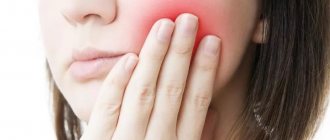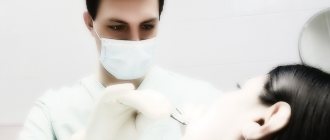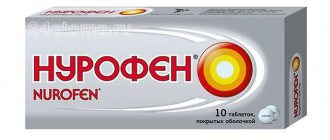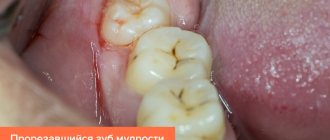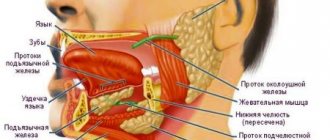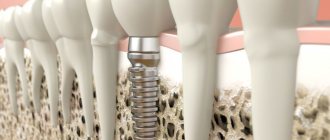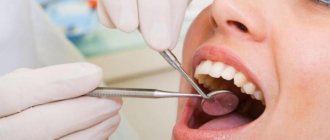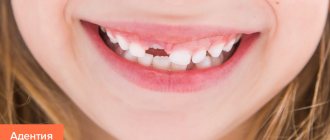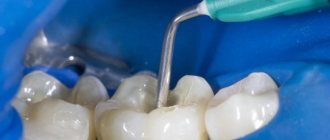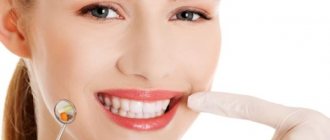Why do teeth hurt mostly at night and not during the day? This question interests a lot of people. Quite often, patients complain that the pain intensifies mainly at night. There are diseases that lead to the development of such ailments. Toothache develops due to the fact that the oral cavity contains a large number of nerve fibers, which become inflamed under the influence of various factors.
Common Causes of Pain
Experts identify the following diseases that lead to the development of toothache:
- Caries. The development of caries leads to damage to tooth enamel and dentin. In the resulting carious cavity, pathogenic microorganisms accumulate and rapidly multiply. When caries reaches a complicated stage, harmful bacteria practically reach the pulp, which is penetrated by nerve fibers. Pain syndrome occurs under the influence of irritating factors.
- Pulpitis. At this stage, damage to the pulp occurs, an inflammatory process develops in it, which spreads to all nerve endings. Painful sensations can occur without any external signs of disease.
- Periodontitis. With this disease, the inflammatory process develops in the tissues surrounding the tooth.
- Flux. This complication appears in the absence of timely treatment of pulpitis. The danger is that the developed inflammatory process spreads to the jaw and periosteum.
- Non-carious lesions of the enamel and hard layers of teeth. They arise as a result of mechanical damage to the tooth, resulting in destruction of the enamel. The main cause of pain with such a lesion is the same processes that occur during diseases.
- After the tooth filling procedure. When filling is performed incorrectly, when the specialist performs the manipulations incorrectly or does not follow the correct procedure, the patient may experience unpleasant pain, which intensifies mainly at night.
- After tooth extraction. Painful sensations that worsen at night may develop after tooth extraction.
Thinning enamel
Tooth enamel can become thinner for a variety of reasons, such as:
- improper bleaching or poor-quality professional cleaning;
- using brushes that are too hard;
- using pastes with abrasives that expose the enamel to chemical and mechanical stress;
- vitamin deficiency (the pain in this case is characterized by an aching, twitching character and manifests itself during cleaning, rinsing the mouth, eating and drinking).
Physiological processes
The most common factors that cause pain at night are physiological. Most often, this phenomenon is caused by a horizontal position taken during rest. In this position, blood flows intensely to the head, brain and jaws, which increases pressure on the inflamed tissues and nerve endings of the teeth. It should be noted that this process is not typical for all dental diseases. The most common cause of acute and severe toothache at night is pulpitis. At this time of day, excessive pressure forms in the inflamed pulp due to increased blood flow, and bundles of nerve fibers begin to send active signals to the central nervous system. Excruciating pain, mainly at night, can also occur with periodontitis and periodontitis.
Types of hypersensitivity
If sensitivity is increased on one or more teeth, it is called limited. If for everyone - generalized.
Table 1. Types of hyperesthesia
| № | View | Reaction |
| 1. | Light | for cold, hot |
| 2. | Average | as with 1st degree plus for sour, sweet, salty |
| 3. | Expressed | as in grade 2 plus mechanical irritants (when brushing teeth, eating) |
Physiological factors
A separate group of reasons why patients experience toothache at night includes physiological factors:
- The time interval is from 00 o'clock to 5 am. This period of time is the most stressful and difficult for the entire human body. It is at this time that pain intensifies and sensitivity to any lesions and diseases, including dental ones, increases.
- Physiologists say that at night the vagus nerve called the vagus is activated, which has a large number of branches, some of which extend to the head area. The vagus affects the general condition and mood of a person. At night, the tone of the vagus nerve changes, which leads to increased sensitivity and pain.
- Also, based on the characteristics of the biorhythm, at night, even in a healthy person, blood pressure increases significantly. High blood pressure increases toothache.
When you can't put off visiting a doctor
Night pain is dangerous because a person does not have the opportunity to immediately go to a doctor and fix the problem. In particular, in the pre-dawn time, against the background of pain and anxiety, blood pressure may rise and a stroke may occur.
If you have severe night pain:
- body temperature increased;
- breathing became difficult;
- heart rate increased;
- severe swelling appeared on one side of the face;
- facial sensitivity on the affected side is impaired,
We call an ambulance and don’t wait for the condition to worsen.
In cases where the pain simply becomes unbearable and it becomes impossible to endure it, look for clinics or services that provide dental care around the clock.
Important.
Be careful when taking medications. Under no circumstances should an overdose be allowed, as this can lead to an allergic reaction, including swelling.
Other lesions
Sometimes pain that is mistaken for a toothache may be due to the effects of other diseases. These include:
- Inflammation of the tertiary nerve can cause severe jaw pain at night. As a result of the influence of various factors, the nerve can be severely irritated, which leads to sensations that can easily be confused with toothache.
- If toothache is felt not only in the area of one tooth, but spreads throughout the entire jaw, then such phenomena may be symptoms of inflammation of the periosteum of the tooth, and even some ENT diseases: sinusitis, sinusitis and otitis media. In a horizontal position, the outflow of fluid from the sinuses is hampered, which increases the discomfort and spreads it to the entire jaw.
In some cases, toothache at night can occur for reasons that are not related to dentistry. For example, due to severe exhaustion of the nervous system, lack of sleep or regular smoking.
What complications may arise?
Pain in a dead tooth necessarily indicates the presence of some pathology that needs to be eliminated in a timely manner. Infection can lead to serious consequences:
- complete destruction and death of the tooth;
- chronic gum inflammation;
- development of periodontitis, gingivitis;
- the appearance of cysts.
In addition, failure to seek medical help in a timely manner can lead to the development of systemic infections that spread from the periosteum through the bloodstream throughout the body!
What to do if your tooth hurts badly at night
It should be remembered that all independent procedures will only help temporarily reduce pain and not eliminate the disease. The most common folk methods include:
- Painkillers. Such medications effectively help eliminate unpleasant symptoms, which alleviates the general condition of a person. The dosage of drugs should be taken according to the instructions. Overdosing on a medicine can cause serious problems.
- The use of tinctures of medicinal herbs for rinsing the mouth. The following herbs are suitable for these purposes: calendula, oak bark, calamus root, chamomile, plantain and sage. They have anti-inflammatory and antiseptic effects. Infusions should be used only if there are no allergic reactions to the herbs used.
- Rinse with salt solution. This solution helps to temporarily eliminate discomfort and make you feel better. It does not cause allergies.
If the temperature rises sharply or swelling occurs, this may be a sign of the spread of the inflammatory process. In such a situation, you must immediately seek the help of a specialist.
Clinical researches
Repeated clinical studies have proven that the two-component mouth rinse ASEPTA ACTIVE more effectively combats the causes of inflammation and bleeding compared to single-component rinses - it reduces inflammation by 41% and reduces bleeding gums by 43%.
Sources:
- The effectiveness of the use of Asept “adhesive balm” and Asept “gel with propolis” in the treatment of chronic generalized periodontitis and gingivitis in the acute stage (Municipal Dental Clinic No. 4, Bryansk, Kaminskaya T. M. Head of the therapeutic department Kaminskaya Tatyana Mikhailovna MUZ City Dental Clinic No. 4, Bryansk
- Study of the clinical effectiveness of treatment and prophylactic agents of the Asepta line in the treatment of inflammatory periodontal diseases (A.I. Grudyanov, I.Yu. Aleksandrovskaya, V.Yu. Korzunina) A.I. GRUDYANOV, Doctor of Medical Sciences, Prof., Head of Department I.Yu. ALEXANDROVSKAYA, Ph.D. V.Yu. KORZUNINA, asp. Department of Periodontology, Central Research Institute of Dentistry and Maxillofacial Surgery, Rosmedtekhnologii, Moscow
- The role of anti-inflammatory rinse in the treatment of periodontal diseases (L.Yu. Orekhova, A.A. Leontyev, S.B. Ulitovsky) L.Yu. OREKHOVA, Doctor of Medical Sciences, Prof., Head of Department; A.A. LEONTIEV, dentist; S.B. ULITOVSKY, Doctor of Medical Sciences, Prof. Department of Therapeutic Dentistry of St. Petersburg State Medical University named after. acad. I. P. Pavlova
- Report on the determination/confirmation of the preventive properties of personal oral hygiene products “ASEPTA PLUS” Remineralization doctor-researcher A.A. Leontyev, head Department of Preventive Dentistry, Doctor of Medical Sciences, Professor S.B. Ulitovsky First St. Petersburg State Medical University named after. acad. I.P. Pavlova, Department of Preventive Dentistry
Visit to the dental office
When visiting a dental clinic, the specialist will conduct a thorough examination of the oral cavity, then prescribe the patient to undergo an x-ray examination. Images are necessary to determine the extent of tissue damage, detect the source of inflammation and make the correct diagnosis. Treatment of deep caries and pulpitis is carried out using the same methods. During treatment, the doctor:
- Provides local anesthesia by injecting an anesthetic into the tissue surrounding the diseased tooth.
- Eliminates affected tissue.
- Performs mechanical and antiseptic treatment of canals.
- Performs canal fillings.
- Takes a control photograph of the tooth.
- Restores the damaged part of the tooth.
After undergoing treatment for deep caries or pulpitis, the patient may still feel discomfort and unpleasant sensations for some time, which should subside over several days. In case of periodontitis and periostitis, it is initially necessary to eliminate the source of infection. To do this, root canals are cleaned and processed. Treatment of gumboil and periodontitis takes longer. After eliminating the source of infection, the canals are filled and the crown of the tooth is restored. Sometimes surgical methods are used to treat flux. If you ignore the problem and do not seek the help of a dentist, then the chances of saving the tooth are greatly reduced. If acute toothache occurs due to the eruption of the eighth tooth, then it is very important to promptly seek the advice of a specialist. After examining the oral cavity and conducting an X-ray examination, the doctor will select the most effective treatment method in each specific case. The dentist begins performing therapeutic procedures after administering local anesthesia. Modern anesthetics are highly effective and well tolerated by the body.
Dentin reaction
Dentin is the hard tissue of the tooth underneath the enamel. This is a layer that, after damage, can allow irritants to pass into the nerve zones. Dentin is destroyed during advanced stages of caries, and can also occur with inadequate dental treatment if an infection develops under a filling.
If teeth ache for this reason, the patient feels a drilling, sharp pain, similar to the sensations of purulent pulpitis.
In very rare cases, teeth ache due to the patient’s individual intolerance to certain dental medications, after visiting a doctor. In this case, the pain is accompanied by itching in the gums and palate.
Oral care
After treatment and elimination of painful sensations, to prevent such situations in the future, you should adhere to the following mandatory rules:
- Carry out regular, thorough cleaning of your teeth and gums with a brush and paste. Use additional hygiene products in the form of rinses, flosses and irrigators.
- undergo regular preventive examinations with a dentist.
- It is extremely important to eat right. To do this, you need to reduce the amount of sweets, confectionery and sweet carbonated drinks you consume. It is important to balance your diet with as many fruits, fresh vegetables, and herbs as possible.
- try not to smoke or drink alcoholic beverages. Nicotine negatively affects the entire human body. People who smoke develop pigmented plaque on their teeth, which provokes the development of gingivitis and periodontitis. Alcohol reduces immunity and contributes to the development of mucosal dystrophy.
- carefully monitor and be attentive to your health!
Treatment of a dead tooth in dentistry
The treatment method for pain in a tooth with a removed nerve depends on the reasons that caused this condition. The dentist will conduct an examination and, if necessary, prescribe an x-ray examination.
- If the cause is unsatisfactory treatment, the filling material is removed, preparation is carried out again, and the canals are inspected with medications placed in them. Then, when the condition returns to normal, the tooth is refilled.
- If the roots are curved, it may be necessary to remove the part that prevents the canals from being cleaned and sealed.
- The cyst or granuloma must be surgically removed along with the pathologically changed tissues around it.
- If there is inflammation of the gums, complex treatment is prescribed. This includes professional teeth cleaning with stone removal, placing medications in periodontal pockets, and taking systemic medications.
- If indicated, physiotherapy procedures are prescribed that have a therapeutic effect on hard tissues.
Remember: by delaying a visit to the dentist, hoping that the pain will go away on its own, you increase the likelihood of serious complications, the treatment of which will be lengthy and possibly expensive.

